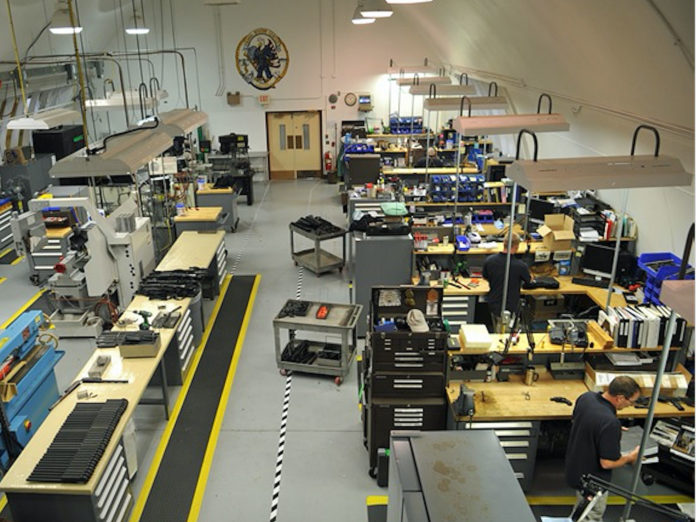
The town that is home to U.S. Immigration and Customs Enforcement (ICE) Armory Operations, was founded in 1849 when the Pennsylvania Railroad built a new stop in Altoona.
ICE Armory Operations handles the acquisition, testing, issuance and maintenance of all ICE-owned firearms, law enforcement equipment and ammunition.
In addition to ICE components Enforcement and Removal Operations (ERO) and Homeland Security Investigations (HSI), the armory services Department of Homeland Security components such as the Federal Protective Service (FPS), United States Coast Guard (USCG) and U.S. Customs and Border Protection (CBP).
(Learn More about ICE, courtesy of ICE .gov and YouTube)
The armory is part of ICE’s newly integrated Office of Training and Tactical Programs (OTTP) and has two primary components: the ballistics laboratory and the armory section.
The ballistics laboratory is responsible for the technical evaluation of firearms, optics, firearms accessories and law enforcement equipment issued to ICE agents and officers.
The personnel in the ballistics laboratory test weapons and approximately 100 lots of ammunition per year to ensure that all weaponry and supplies used by ICE are in excellent working condition.

“We make sure everything that goes out to the field is safe, performs well and does what it is supposed to do,” explained Armory Operations Supervisory Special Agent Robert L. Burgess.
Lowell Johnson, supervisory engineer of the testing laboratory, finds it easy to stay motivated and excited about his work.
“Many of us here are former military and combat veterans. With our prior service comes a certain urgency we have in doing our job and doing it to the best of our ability to support the people in the field.”
The personnel in the armory are equipment specialist ordinants. They receive weapons directly from the manufacturer, log them into inventory, dismantle weapons and check them for defects.
They also receive damaged or end-of-life weapons from the field and re-condition or retire each one as needed. The armory section conducts hundreds of firearms examinations and repairs or rebuilds thousands of firearms each year.

James Carmany, special agent and armory supervisor, enjoys the technical aspects of the firearm program including testing, evaluating and preparing different guns.
“I especially like studying what went wrong with a particular weapon to figure out how to prevent mishaps in the future,” said Carmany.
In a typical month, armory operations will receive and field 320 new weapons, receive, repair and return to the field 289 weapons, receive and process more than 728 parcels containing law enforcement equipment, weapon replacement parts and cleaning kits, receive 397,000 rounds of ammunition, and ship to the field 279,000 rounds of ammunition.
The total weight of products shipped in and out of ICE Armory Operations per month usually exceeds 15,500 pounds.
Carmany has confidence in the armory personnel.
“They all know they may be working with a gun that may save someone’s life someday. They don’t know which gun it is, so they treat each one impeccably.”
“They understand that someday a person’s life may depend on the firearm they hold in their hands,” he said.

















